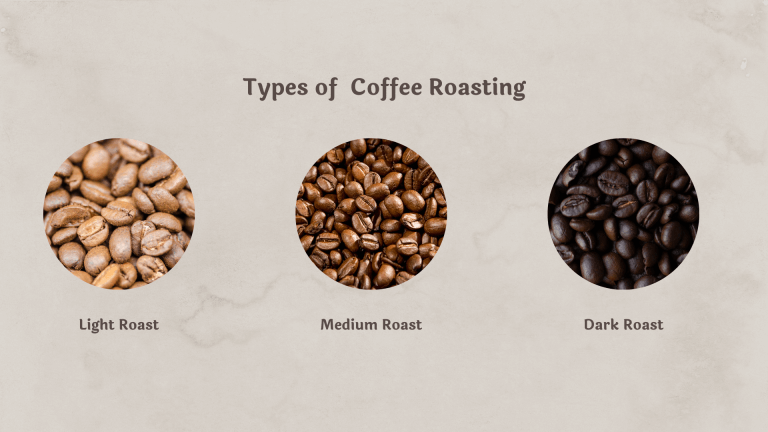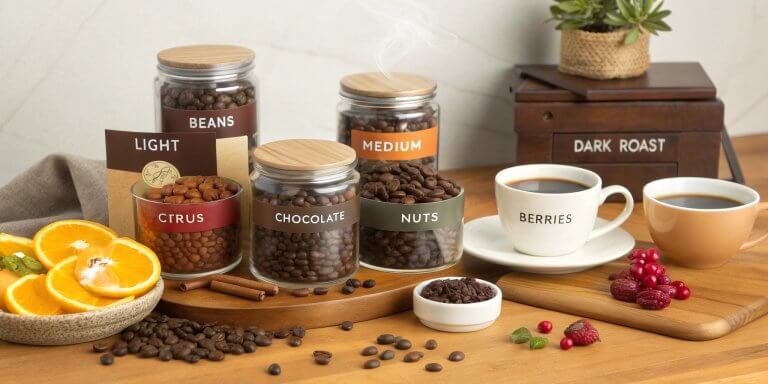
Hey there, black coffee lovers!
If you’re anything like me, you appreciate black coffee’s pure, unadulterated taste. No cream, no sugar, just the rich, bold flavor of the bean shining through. But have you ever wondered what beans are needed for black coffee to get that perfect cup?
This blog post guides you in selecting the best coffee beans for an exceptional black coffee experience. We’ll dive deep into what makes certain beans stand out and how to unlock their full potential. With an increasing number of people exploring the nuances of black coffee, understanding the impact of bean type, roast level, and brewing method is more important than ever. So, let’s get started and discover the secrets to a truly fantastic cup of black coffee!
Understanding the Basics of Coffee Beans
So, you want to know what beans are for black coffee? It all starts with understanding the two main species: Arabica and Robusta. Think of them as the yin and yang of the coffee world.
- Arabica Beans: These are the darlings of the coffee world, making up about 60% of global production.
- They’re known for their smooth, aromatic flavor and are less bitter than Robusta.
- You’ll often find complex notes of chocolate, nuts, caramel, and fruits in Arabica beans.
- These beans like the finer things in life, thriving at higher altitudes with cool temperatures and plenty of rain.
- Examples include the ever-popular Ethiopian Yirgacheffe, Colombian Supremo, and Guatemalan Antigua.
- Arabica beans are fantastic for black coffee because of their complex flavors and natural sweetness. They let you savor all those subtle notes without adding milk or sugar.
- Robusta Beans: These are the tough guys of the coffee family.
- They have a bold, strong, and often bitter flavor, sometimes with earthy or rubbery notes.
- Robusta plants are more resilient and can handle hotter climates and lower altitudes.
- If you’re looking for a caffeine kick, Robusta is your bean. It has significantly higher caffeine content than Arabica.
- Examples include Vietnamese Robusta and Ugandan Robusta.
- You’ll often find Robusta in espresso blends and instant coffee. While you can drink it black, the bitterness might be too much for some.
A great tip is to consider blending different beans. That way, you can get a good flavor and caffeine strength balance.
The Significance of Roast Levels in Black Coffee
Roast level is super important when figuring out what beans are for black coffee because it changes the flavor. Think of it like cooking – the longer you cook something, the different it tastes! Here’s the lowdown:
- Light Roast:
- These beans are light brown with no oil on the surface.
- They’re known for their higher acidity and lighter body.
- Expect bright, citrusy, floral, or fruity notes.
- Light roasts have slightly more caffeine than darker roasts.
- Brewing methods like pour-over and drip bring out their subtle flavors.
- Medium Roast:
- These beans are a medium brown with a small amount of oil.
- They strike a balance with moderate acidity and a medium body.
- You’ll often taste caramel, nuts, and chocolate, maybe with some fruity or floral hints.
- They have a moderate caffeine content.
- Brew them using drip, pour-over, or a French press.
- Dark Roast:
- These beans are dark brown (almost black!) and oily.
- They’re all about bold flavors.
- Think smoky with dark chocolate, roasted nuts, and spices.
- They have slightly less caffeine than lighter roasts.
- Espresso-based drinks, French press, and cold brew work great with dark roasts.
Remember that darker roasts generally contain slightly less caffeine than lighter roasts because the roasting process breaks down caffeine molecules. }
Single-Origin Coffees vs Blends for Black Coffee
When deciding what beans to use for black coffee, you’re faced with another important choice: single-origin versus a blend. Both options offer unique and exciting experiences that are worth exploring!
- Single-Origin Coffees:
- These coffees come from a specific region or even a single farm.
- They offer a distinct flavor profile that reflects the terroir (the soil, climate, and environment where the coffee is grown).
- Black coffee drinkers who enjoy exploring distinct flavor notes are often drawn to single-origin coffees.
- For example, Ethiopian coffees are often fruity and floral, while Sumatran coffees are earthy and rich.
- Coffee Blends:
- Blends combine beans from different origins.
- The goal is to create a complex and balanced flavor.
- Blends are great for those who want consistency and a harmonious combination of sweetness, acidity, and body.
To balance flavor and caffeine strength, consider creating unique black coffee blends by combining Arabica and Robusta beans.
Brewing Methods to Elevate Black Coffee
It’s crucial to understand that the brewing method you choose significantly influences the flavor of your black coffee. Each method interacts uniquely with the coffee grounds, affecting extraction time, water temperature, and overall taste. This knowledge empowers you to make informed decisions about your coffee brewing.
- Pour-Over: This method offers precise control over brewing, leading to a clean and nuanced cup. It’s best for light to medium roasts to highlight their subtle flavors. The key to a good pour-over is maintaining the proper water temperature and using slow pouring techniques.
- French Press: The French press is an immersion method that produces a full-bodied cup with a rich flavor. It’s recommended for medium to dark roasts. For the best results, use coarse grounds and ensure proper steeping times.
- Drip Coffee Maker: This versatile and convenient option works well with medium roasts and is ideal for everyday brewing due to its consistency.
- Cold Brew: This method yields a smooth, low-acid coffee, perfect for dark roasts and beans with chocolatey, nutty, or caramel notes.
- Espresso: Espresso brewing creates a concentrated and intense shot of coffee.
Remember, brewing is not just a step but a crucial part of the coffee experience. How you dial in the coffee grind, ensure water quality, and perfect your coffee-to-water ratio will directly impact the flavor of your black coffee. This realization makes you more involved and responsible for the taste of your coffee.
How to Brew Black Coffee Like a Pro
To brew black coffee like a pro, focus on freshness, grind size, water temperature, and accurate measurements.
- Use Freshly Roasted Beans: Freshly roasted beans are essential for the best flavor. Purchase beans from reputable roasters that provide roast dates. Coffee beans are at their peak flavor within two weeks of roasting. Buy small quantities of beans and store them in an airtight container in a cool, dark place.
- Grind Just Before Brewing: Grinding coffee beans before brewing helps preserve their freshness and flavor. Freshly ground beans have more vibrant and complex flavors. Invest in a burr grinder for a more consistent grind size. The grind size should be appropriate for your brewing method:
- Coarse: French press, cold brew.
- Medium-coarse: Pour-over.
- Medium: Drip coffee maker.
- Fine: Espresso.
- Use the Right Water Temperature: Water temperature is crucial in extracting flavors and aromas from coffee beans. The ideal water temperature for brewing black coffee is between 200-205°F (93- 96°C). Water that is too hot can extract bitter compounds, while water that is too cool can result in under-extraction and a weak, sour cup.
- Measure Coffee and Water Accurately: Using the correct coffee-to-water ratio is essential for a balanced and flavorful cup. A general guideline is to use a 1:16 ratio of coffee to water (e.g., 20 grams of coffee to 320 grams of water). Use a kitchen scale to measure both coffee beans and water for accuracy.
- Additional Tips:
- Preheat your brewing equipment.
- Experiment with different brewing ratios to find your preferred strength.
- Add a pinch of salt to balance out the bitterness and enhance the sweetness.
Addressing Common Concerns and Myths
Here are some common concerns and myths about black coffee addressed, drawing on the information from the sources:
- Caffeine Content: It is a common belief that darker roasts have more caffeine, but the sources clarify that light roasts often have slightly more caffeine than darker roasts because the roasting process can break down caffeine molecules. Moderate consumption of black coffee is generally considered safe and can be beneficial. Robusta beans, however, have significantly higher caffeine content than Arabica beans.
- Acidity: Coffee’s acidity is not necessarily negative; it contributes to the brightness and complexity of the flavor profile. For sensitive people, the sources suggest looking for low-acid options, like Lifeboost.
- Bitterness: To reduce bitterness in black coffee, you can adjust various factors. Tips include adjusting grind size, water temperature, and roast level. Specifically, using the proper water temperature between 200-205°F (93-96°C) is crucial, as too hot water can extract bitter compounds. The sources also mention the addition of a pinch of salt to balance out the bitterness and enhance the sweetness.
- Health Benefits: Black coffee contains antioxidants and other beneficial compounds. Potential benefits highlighted in the sources include improved cognitive function and a reduced risk of certain diseases.
To conclude, finding your perfect cup of black coffee hinges on understanding the fundamentals: the type of bean, the roast level, and the brewing method you choose. We’ve explored how Arabica beans offer complex flavours and natural sweetness, while Robusta beans provide a significant caffeine kick and bolder taste. The roast level dramatically influences acidity, body, and flavour notes from light to dark. Furthermore, your brewing method profoundly impacts the final taste by affecting extraction.
Ultimately, the journey to your ideal black coffee is a personal one. Don’t be afraid to experiment with different beans, roasts, and brewing techniques to discover what delights your palate.
What are your go-to black coffee beans or brewing methods? Share your favourites in the comments below!

